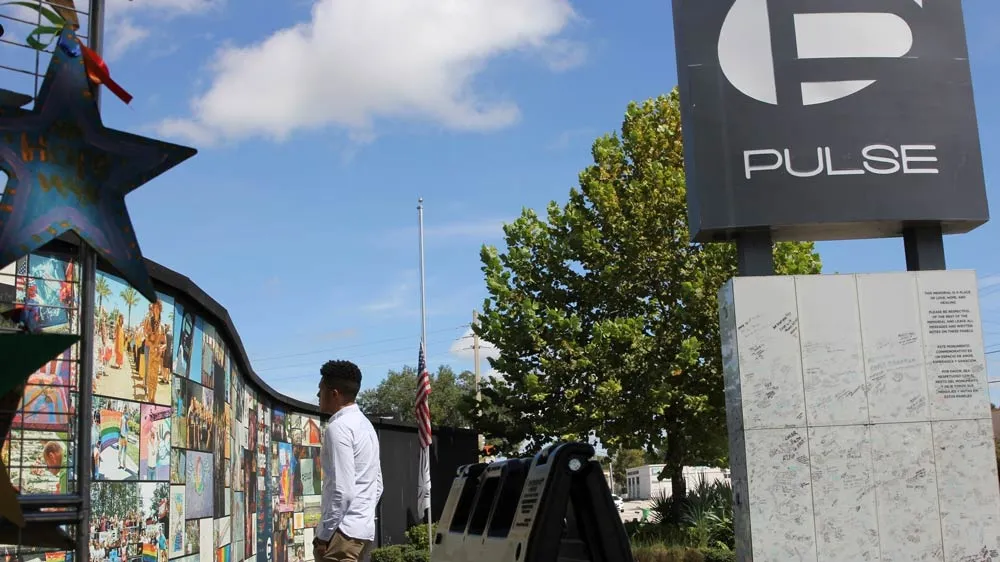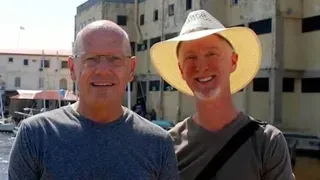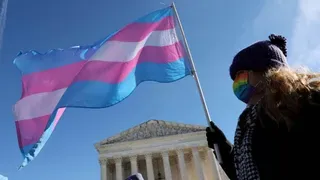March 10, 2011
Mongolian LGBT Activists Honored in Manhattan
Michael K. Lavers READ TIME: 2 MIN.
The International Gay and Lesbian Human Rights Commission honored Mongolian LGBT activists and journalist Jeff Sharlet at Landmark on the Park on Manhattan's Upper West Side on Monday, March 7.
Anaraa Nyamdorj and Munkhzaya Nergui accepted IGLHRC's Felipa de Souza Award on behalf of the Mongolian LGBT Centre. Founded in 2006 and only formally recognized by the Mongolian government in Dec. 2009, the LGBT Centre is currently working with employers around the country to create LGBT-friendly workplaces. The organization, which is located in the Ulaanbaatar, the country's capital, is also working to raise awareness of anti-LGBT hate crimes.
With funding from the State Department, the LGBT Centre launched a nationwide multimedia campaign last November designed to highlight anti-LGBT discrimination and hate crimes, domestic violence and a lack of relationship recognition. The campaign has appeared on three of the country's major television networks, as well as on radio stations. Posters and even podcasts feature LGBT Centre staff.
"It has generated a lot of feedback and excitement in the society," Nyamdorj told EDGE.
She remains optimistic about the progress she and other Mongolian LGBT activists have made over the last decade. The LGBT Centre plans to submit a proposal to the Parliamentary Standing Committee State Structure in the coming days that seeks to amend the Mongolian Constitution to ban discrimination based on sexual orientation, gender identity and expression, health-HIV-status and disability.
"It's tough to be an LGBT person in Mongolia," she said, noting LGBT Mongolians routinely lose their jobs and housing and face anti-LGBT violence. "We're simply just treated like dirt. That is the reality we're trying to fight."
Founded in 1991; IGLHRC currently has 20 staffers in New York, Argentina, Paraguay, the Philippines and South Africa. The organization's honorees over the last two decades include the Sister Namibia Collective; Burmese activist Aung Myo Min; Jamaica Forum for Lesbians, All-Sexuals and Gays and Chilean transgender activist Andr�s Ignacio Rivera Duarte.
Actor Alan Cumming emceed the event, which took place less than two months after Ugandan gay activist David Kato's murder.
IGLHRC executive director Cary Alan Johnson cited Kato's murder and Parliamentarian David Bahati's so-called Anti-Homosexuality Bill that would impose the death penalty upon anyone found guilty of repeated same-sex sexual acts as proof Uganda remains a country in which "grave human rights abuses against LGBT people" continue. He further applauded Sharlet for his reporting that highlighted the connections between American evangelicals and Bahati.
Sharlet added he is increasingly optimistic that Ugandan lawmakers have taken the international outcry over the Anti-Homosexuality Bill seriously. He added, however, the situation for LGBT Ugandans remains dire.
"The bill is still there; it's still under consideration," said Sharlet. "Because of the tragic murder of David Kato, we know people are still dying."
Based in Washington, D.C., Michael K. Lavers has appeared in the New York Times, BBC, WNYC, Huffington Post, Village Voice, Advocate and other mainstream and LGBT media outlets. He is an unapologetic political junkie who thoroughly enjoys living inside the Beltway.







